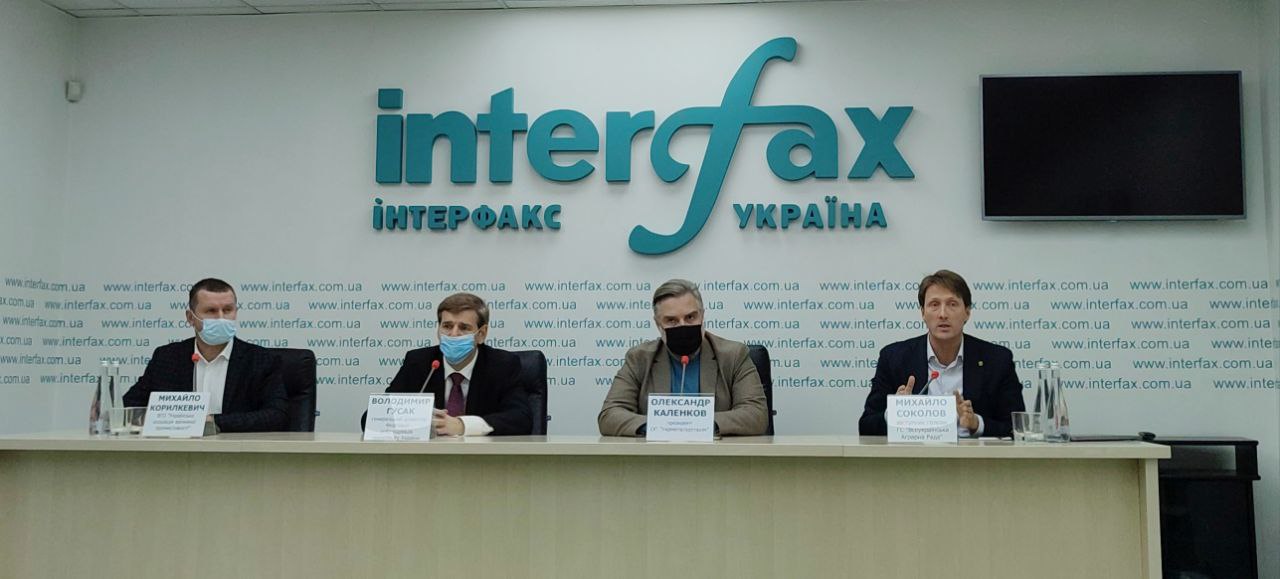
The initiative of the Ministry of Infrastructure of Ukraine to renew the railway wagons fleet by cancellation old ones without assessing their technical condition will lead to a huge Siphon off money from the economy and create a basis for corruption.
This statement was emphasized by the UAC Deputy Chairman Mykhailo Sokolov during the press conference "Initiative to limit the service life of the railway wagons and the threats it poses to the Ukrainian economy".
"This initiative will cost more than UAH100 billion, some of which will rest on the shoulders of agricultural producers. And if they spend them on railway wagons, because they need to transport products, the money will not be invested in other projects. For example, in land reclamation, where there are huge problems and where billions of investments are needed. They will not be spent on the construction of elevators, and we need it, because already there is not enough storage capacity. We will lose the harvest, it will be simply stopped, because it will be no sense to make more. After all, it will not be possible to store or export grain. That means, instead of doing everything right, they offer to destroy those railway wagons that can work, spend money on it and take them from other industries, where they could give the development of GDP. I have a question: how could such a thing come to mind in a situation when there is a crisis in the country," the UAC Deputy Chairman said.
As Mykhailo Sokolov noted, in this case it was advisable to talk about the assessment of the technical condition of the railway wagons - if they were suitable and could work – we shouldn’t take into account theirs age. After all, in this case will have to exclude quite good railway wagons and spend money to buy new ones. In addition, this approach creates huge corruption risks.
"If you read this order, which determines the wagons’ expiration date, especially to the table that is attached, then very interesting things appear. It turns out that a wagon of the same year can fall into several categories in terms of cancellation. And this is not the only one case. There are dozens of such wagons. And there is the question: who will decide how to cancel them? That means, we have a monopolist who dominates the wagons market. An order is created and according to it the monopolist will decide which wagons can be cancelled. And it is impossible to predict it, it is impossible to predict one's activity, because it depends only on its decision. What's it called? Corruption! If there was one code, we could believe it was a coincidence, but there were a lot of them. Therefore, it’s difficult to believe in such a "coincidence" Mykhailo Sokolov said.
In addition, the UAC Deputy Chairman emphasized that Ukrzaliznytsia's big problem was wearing process of rail tracks. 25% need major repairs, another 10% need reconstruction. However, the number of tracks, that are repaired, is too small, in comparison to what is needed.
“I have a question: how about such "excellent" indicators, including financial ones? It is when Ukrzaliznytsia is unprofitable every year, when it has such a high volume of unrepaired tracks, and I'm not talking about locomotives, which are worn out by 98%, and how in such a situation with 36 billion in debt and short-term 16 billion, they are going to take another 50 billion? Any normal financial organization with such indicators will not give even a million. If this initiative with the renewal of the railway wagons fleet somehow happens, then the repair of tracks will be forgotten. In general, did those who prepared this order think about Ukrzaliznytsia? No. It seems that they thought of only one thing: how could the owners of enterprises that make railway wagons be able to get money in the end,” the UAC Deputy Chairman said.
We will remind, earlier Mykhailo Sokolov emphasized that the renewal of a railway wagons fleet of Ukrzaliznytsia, announced by the Ministry of Infrastructure of Ukraine, would lead to ousting from the market of quite serviceable private grain trucks and cause losses for farmers.
Tuesday, 2 November 2021